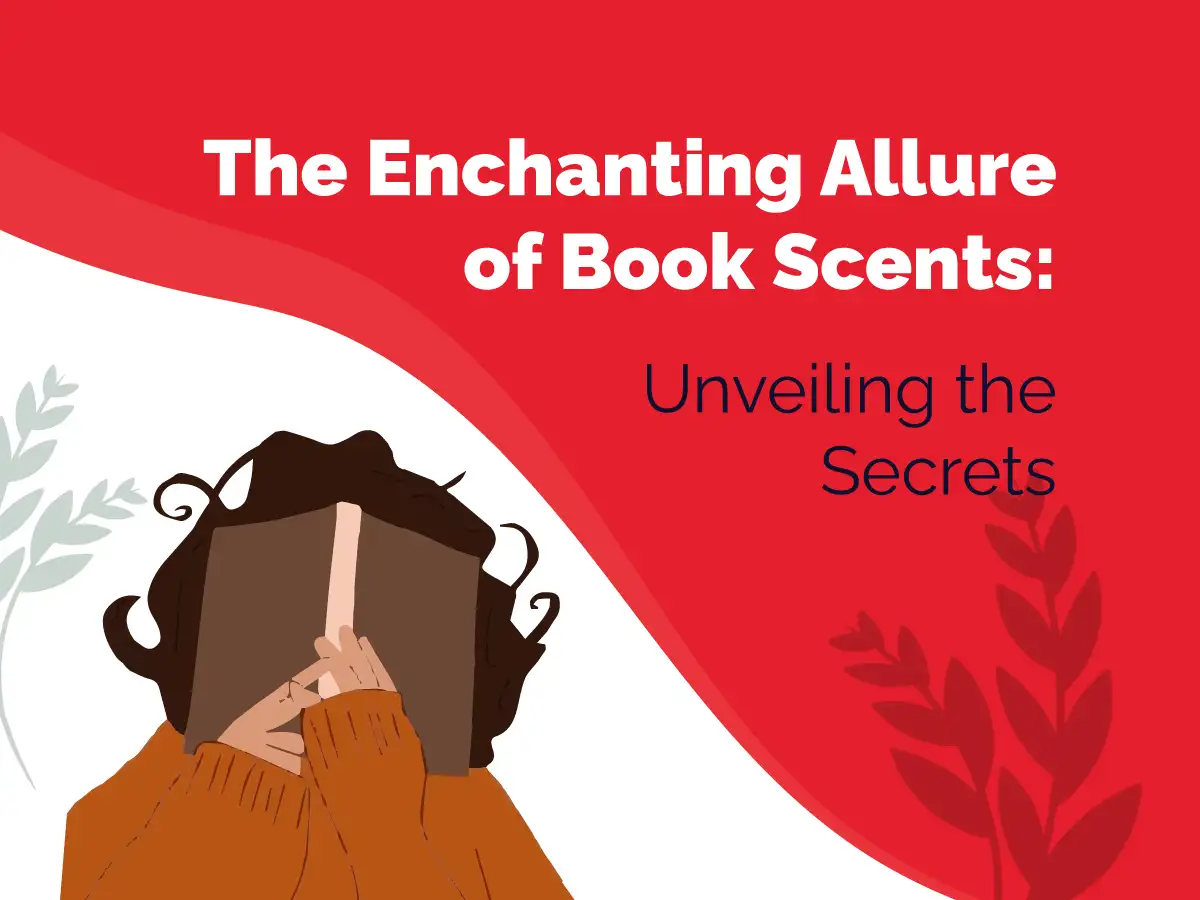Have you ever wondered why we love the smell of books? Why do we, book lovers, secretly inhale the pages of our favorite novels in libraries, bookstores, and the cozy corners of our homes? Well, my young friends, there’s a fascinating world hidden within the scent of books, a world that connects us to our past, our memories, and the very essence of our literary culture. Let’s embark on a journey to explore the psychology behind this phenomenon and uncover the secrets of bibliosmia—the love of book smell.
The Power of Scent in Our Cultural Heritage
Smells, including the distinctive scent of books, are more than just pleasant fragrances. They are a crucial component of our cultural heritage. The scents of aged books offer valuable information about the nature, history, and physical condition of these literary treasures, as well as the era when these scents were absorbed.
Specific smells have the power to evoke memories and connect us to particular places and moments in history. As young readers, you’re not just enjoying a story; you’re engaging with a piece of history itself. This is why preserving and studying historic odors is vital—it helps us better understand our cultural heritage.
The Science of Book Smell
Researchers like Cecilia Bembibre and Matija Strlic are pioneers in this field. They’re working on frameworks and methodologies to identify, analyze, and archive these historic odors, recognizing their importance in heritage preservation. Their work is like a time machine, allowing us to experience history through our noses.
Now, let’s delve into why we find the smell of old books so enchanting. The appeal of this scent can be attributed to the organic volatile compounds released as the materials in books—paper, adhesive, ink—degrade over time. But it’s not just about the chemistry; it’s about the magic it works on our minds.
The Olfactory Connection to Memory and Emotion
The scent of books has a direct line to our memories and emotions. It’s the olfactory bulb’s connection to the brain’s limbic system, the seat of memories and feelings. When you pick up an old book and breathe in its aroma, you’re transported to moments of comfort, anticipation, and relaxation.
Books are known to evoke positive memories and emotions, reminding people of cozy nights curled up with a good story, whether it’s a physical book or a free online novels, the anticipation of turning the page, and the relaxation that comes from escaping into a different world. The smell of a beloved book can create a unique and emotionally resonant experience, much like the feeling of anticipating an old favorite or returning home after a long absence.
The Battle of the Senses: Physical vs. Digital
Ray Bradbury, the brilliant author of “Fahrenheit 451,” dismissed the long-term future of e-books, emphasizing the unique sensory experience of physical books. Sales figures support his argument, showing that traditional print books remain popular, with many readers preferring them over e-books. The term “bibliosmia,” coined on Twitter, refers to the unique smell of books and has gained recognition as an essential part of the reading experience.
Unveiling the Chemistry of Bibliosmia
But what exactly creates this beguiling scent? The smell of books, or bibliosmia, is caused by the chemical breakdown of compounds within paper, particularly cellulose and lignin, as well as other chemicals like vanillin.
Researchers from University College London conducted a study where participants sniffed extracts from a 1928 French novel and other scents without knowing what they were smelling. Over a third of the participants described the old book’s smell as resembling chocolate, and coffee was the second most reported scent. The similarity in VOCs between chocolate, coffee, and decaying paper contributes to the association of these scents.
The Quest to Preserve and Recreate
Scents play a crucial role in memory, as our sense of smell is closely connected to the memory center in the human brain, triggering powerful and vivid memories. Researchers aim to pinpoint and recreate historical scents in a lab, sparking discussions among various fields about the importance of describing and preserving smells.
In conclusion, my dear young book enthusiasts, enjoying the scent of old books isn’t just a quirk of ours—it’s a multi-sensory experience that enhances our love for reading. So, the next time you pick up a book, take a moment to savor that delightful aroma. It’s not just about the story within the pages; it’s about the entire sensory journey that awaits you, with the added bonus of a piece of chocolate for full enjoyment.
The Smell of New vs. Old Books
Before we wrap up our exploration of bibliosmia, let’s briefly touch on the differences between the smells of new and old books. The specific compounds responsible for the smell of new books are difficult to pinpoint due to variations in paper, inks, and adhesives used in their production.
The manufacture of paper involves chemicals like sodium hydroxide and hydrogen peroxide, which can lead to the release of volatile organic compounds (VOCs) into the air, contributing to the new book smell. Inks and adhesives used in book production also release VOCs that add to the overall aroma of new books.
Differences in materials and manufacturing processes mean that the new book smell can vary, making it challenging to define definitively.
On the other hand, the smell of old books is largely attributed to the chemical breakdown of compounds within the paper, particularly cellulose and lignin. Lignin, found in varying amounts in paper, breaks down over time, contributing to the yellowing of old paper and the production of volatile organic compounds.
Specific compounds that contribute to the smell of old books include benzaldehyde (almond-like), vanillin (vanilla-like), ethyl benzene, toluene (sweet odors), and 2-ethyl hexanol (slightly floral). Furfural is another compound given off by old books, which can be used to assess the extent of degradation, age, and composition of books. The emission of furfural increases with the age of books published after the mid-1800s.
So, there you have it, young readers—a journey into the captivating world of book smells, from the allure of old books to the mysteries of new ones. Remember, the next time you open a book, you’re not just diving into a story; you’re immersing yourself in a sensory experience that connects you to the past, stirs your emotions, and enhances your love for the written word.
Happy reading with Ivan Stories, an online stories-sharing website to read stories online.



